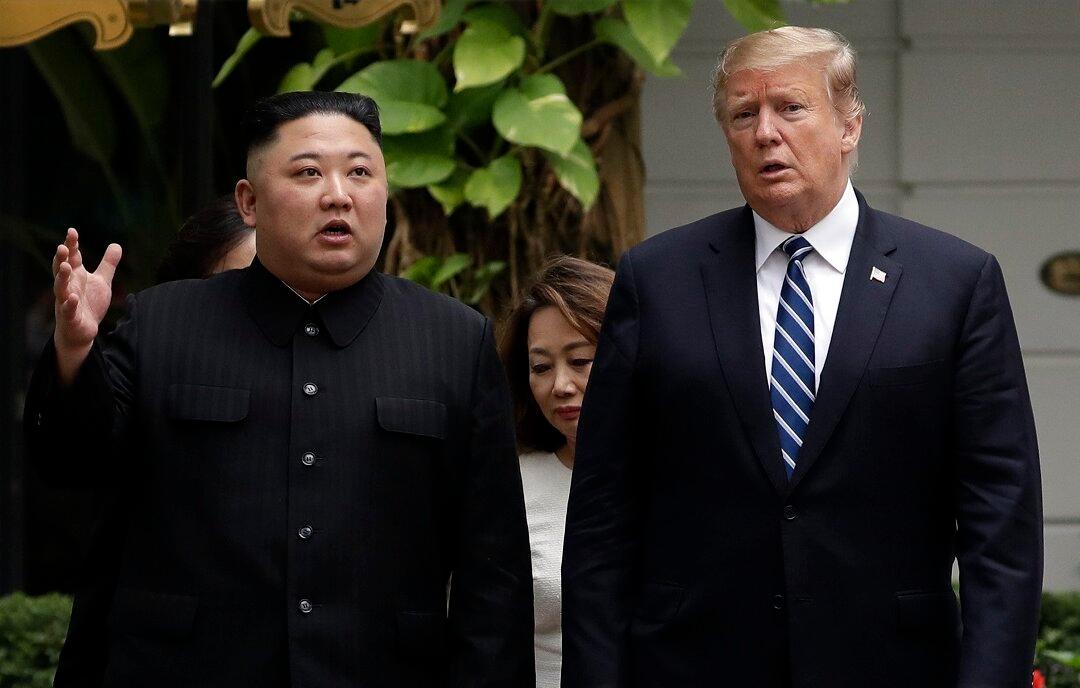President Donald Trump said that North Korea must denuclearize and that its leader, Kim Jong Un, has “too much to lose” if he acts in a hostile manner, adding that if Kim interferes with the 2020 presidential election, their relationship could end.
Trump’s comments came after North Korea said on Dec. 8 that the country had conducted a “very important” test at its once-dismantled rocket testing launch site, according to the state media agency KCNA.





